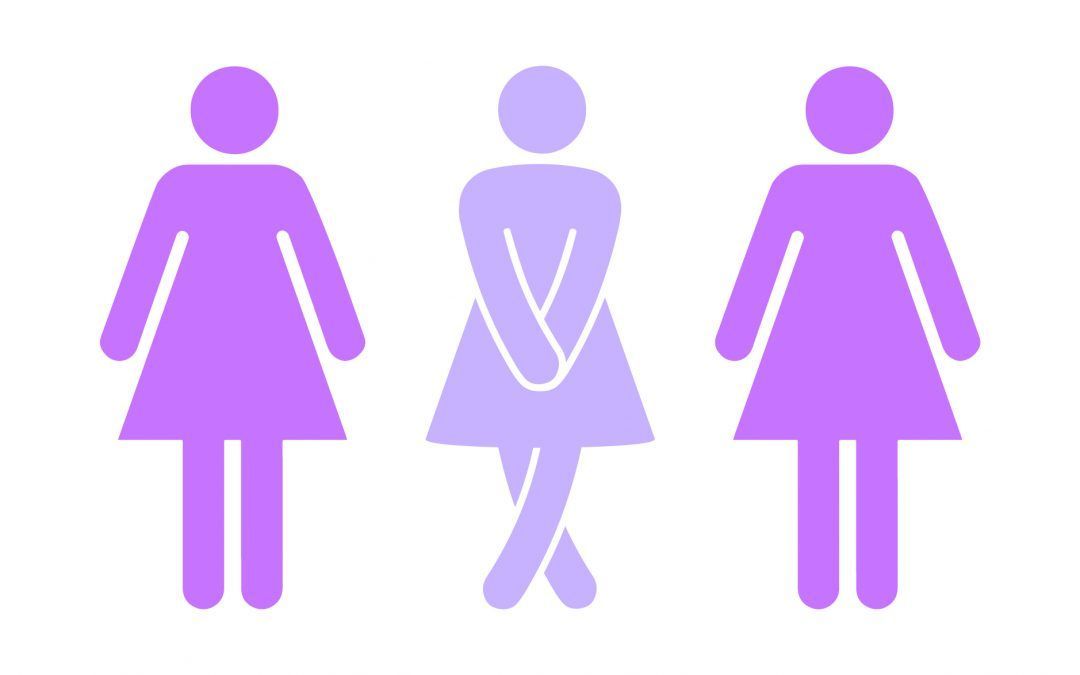It is estimated that 50% of adult women experience urinary incontinence. There are a few different types of incontinence. Stress incontinence is leaking urine when you sneeze, laugh, cough, jump or exercise. Urge incontinence is leaking because you can’t hold long enough to get to the bathroom. Mixed incontinence is a combination of both.
Risk factors for incontinence include increased age, obesity, type 2 diabetes, and history of former or current cigarette smoking. Birth history also is a factor, a vaginal delivery or multiple births increase the risk more than c-section. A hysterectomy also shows increased risk of incontinence after.
So, ladies, let’s get real. If you have given birth and are getting older (is anyone getting younger?), statistics are not fabulous. Is it possible to decrease your risk? I believe you can. Keep reading if you want to learn how… and no, the answer is not daily kegels (pelvic floor muscle contractions).
First, check in with your pelvic floor muscles. Are they doing their job well? If you are noticing occasional leaking- even just a little bit, even just sometimes; that is a sign that your pelvic floor muscles need some attention. Seek treatment now- pelvic floor Physical Therapy is the #1 recommended intervention and can not only help you not leak now, will likely help set you up for better success in the future. If you are not having any leaking right now, that is great but I want you to explore a little deeper. Do you have hip pain, low back pain or hip tightness? Do you have pelvic pain (pubic symphysis, SI joint) or pain with gynecological exams or intercourse? If the answer to any of those is yes, the pelvic floor muscles may be involved and are often hypertonic (too tight). How do you know for sure? Get assessed by your OBGYN or a pelvic floor therapist.
How strong is your pelvic floor? Next time you go to the bathroom, can you stop the flow of urine? Do not do this frequently as it can cause problems, but as a one time check it can at least tell you if you know where your pelvic floor muscles are if they are strong enough to accomplish this task. If you cannot do this, it can mean that the muscles are weak, or sometimes all it means is that your brain doesn’t know where the muscles are. If you can do this but are experiencing any of the other issues or occasional leaking, it can be a timing or coordination issue of the muscles. It could also possibly be a hypertonic pelvic floor - if the muscles are already contracted/tight, then there is no additional help when you need it.
If you have ever given birth or had a pelvic or lower abdominal surgery, request PT. It is not the standard of care but when the muscles are overstretched in pregnancy/birth or cut through (c-section or surgery), having a little help to reconnect after can be so helpful. Don’t worry, it is never too late to make changes. Also, minimize all other risk factors you can. If you have a high BMI, focus on weight loss. If you are a smoker, consider stopping. Set yourself up for success.
You can start by taking action now! If you are experiencing incontinence or other pelvic floor issues, schedule a free virtual discovery session with a Physical Therapist to help determine what is the appropriate next step for you. If you are not having issues but want to be proactive, schedule a Mommy Tune Up- a private wellness session with a women’s health Physical Therapist that will assess core strength, flexibility, and more. And now includes a screening of your pelvic floor muscles with real time ultrasound (that is performed on the lower abdominal wall) so we can make sure your pelvic floor muscles are doing their job!
Discovery session: https://thepilatesptstudioschedule.as.me/schedule.php?appointmentType=7437575
Mommy Tune Up: https://thepilatesptstudioschedule.as.me/schedule.php?appointmentType=8496786

